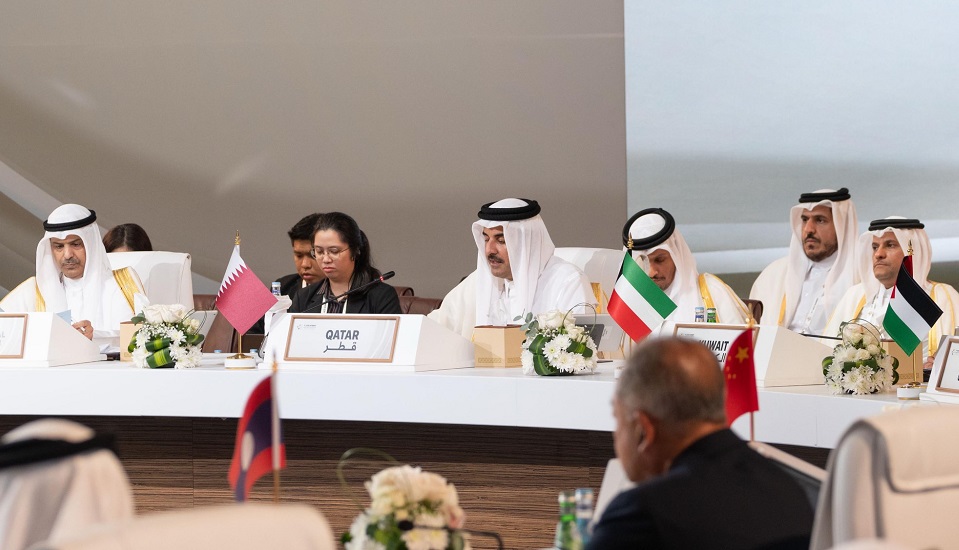
Qatar Suspends Mediation Efforts in Israel-Hamas Conflict Amid Stalemate
Qatar announced on November 9 that it has suspended its mediation efforts between Hamas and Israel due to growing frustration over stalled ceasefire negotiations.
The Gulf nation, which has historically hosted Hamas leadership, cited a lack of progress in reaching a deal as the reason for its withdrawal. Qatar’s decision raised questions about whether the remaining Hamas leaders currently residing in the country would need to leave, although their next destination remains unclear. Potential options for relocation include Iran, Turkey, and Lebanon, where some Hamas officials are already based.
U.S. Urges Qatar to Expel Hamas Amid Rejected Hostage Deal
Reports indicate that the United States recently encouraged Qatar to cut ties with Hamas following the group’s rejection of a proposed hostage deal. A senior U.S. official disclosed that the Biden administration communicated this stance to Qatar two weeks prior. In response, Qatar informed Hamas of its decision, stating that the group’s office in Doha would need to close if they continued to refuse meaningful engagement in peace negotiations.
An Egyptian official familiar with the negotiations mentioned that Qatar could resume its role as mediator if both parties display genuine intent to pursue peace. Meanwhile, Qatar’s Foreign Ministry confirmed its temporary exit from mediation, noting that efforts would resume if Israel and Hamas showed a “willingness and seriousness to end the brutal war.”
Growing Humanitarian Crisis as Israel Strikes Intensify in Gaza
As tensions continue to escalate, the humanitarian situation in Gaza worsens. Israeli airstrikes have targeted multiple areas, resulting in casualties across the densely populated region. On Saturday, strikes in Gaza’s Tufah neighborhood reportedly killed at least 16 people, including women, children, and journalists. Another attack on the city of Khan Younis left seven people dead. Israel’s military claimed the strikes targeted Palestinian militants but did not provide evidence to substantiate this.
The situation extends beyond Gaza, with cross-border hostilities also impacting Lebanon. Israeli forces targeted Hezbollah-controlled sites in southern Lebanon, particularly in the capital’s southern suburbs and the port city of Tyre, where seven people reportedly died.
Aid Deliveries Reach Northern Gaza Amidst Rising Famine Risk
In response to the mounting humanitarian crisis, 11 trucks carrying food, water, and medical supplies reached northern Gaza, marking the first aid delivery since Israel launched its latest military offensive. However, logistical issues have hampered the distribution of aid. In Jabaliya, Israeli forces reportedly stopped a convoy destined for Beit Lahiya, offloading supplies prematurely.
The United Nations has warned that northern Gaza is at significant risk of famine, with the U.S. urging Israel to facilitate better access to humanitarian aid. According to U.N. figures, 90% of Gaza’s population has been displaced due to ongoing conflict, leaving many residents in urgent need of assistance.
Ongoing Violence and Protests as Ceasefire Eludes Negotiators
The war between Israel and Hamas has now extended over a year, with Palestinian officials estimating over 43,000 lives lost in Gaza. The majority of casualties are believed to be women and children, as reported by Palestinian health officials. The conflict, which began with a Hamas-led assault on October 7, 2023, continues to leave thousands of families without homes, with widespread destruction across the region.
In Israel, citizens are expressing frustration over the continued hostage situation. Demonstrators in Tel Aviv have called for a ceasefire, highlighting the toll that the prolonged conflict has taken on both Israelis and Palestinians. As diplomatic options narrow and hostilities persist, the region remains on edge, awaiting meaningful progress in peace talks.


















